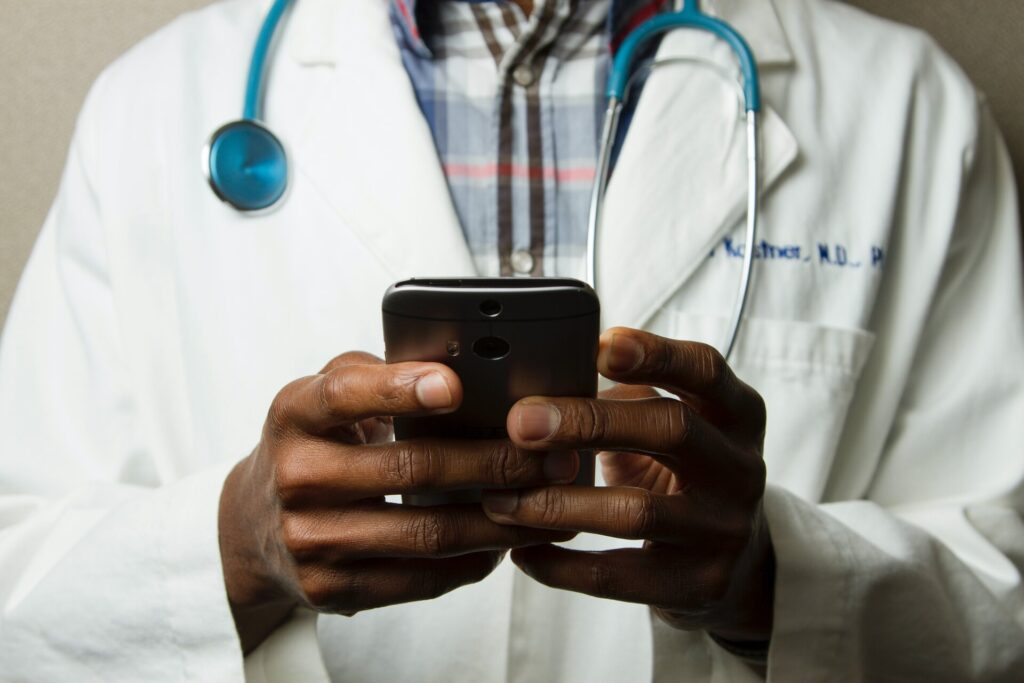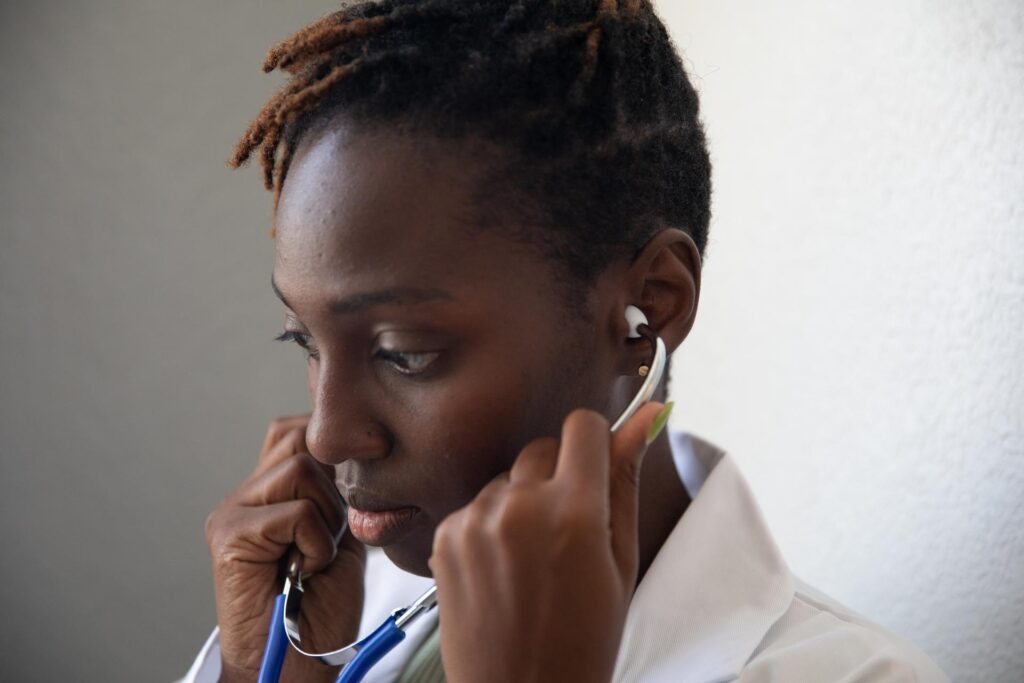Investment Opportunities in Africa’s Healthcare Sector
Have you ever wondered about the state of healthcare in Africa? Picture this: a continent with a rapidly growing population, but struggling with limited access to quality medical facilities. Did you know that in many regions of Africa, basic healthcare services are a luxury, and medical infrastructure is often inadequate to meet the needs of its people? This glaring disparity is just one facet of the complex healthcare challenges that Africa grapples with.
Africa faces numerous healthcare challenges, including a lack of medical infrastructure, healthcare disparities, and limited access to quality healthcare services. These issues are exacerbated by the continent’s fast-growing population, urbanization, and the burden of both communicable and non-communicable diseases. Despite these challenges, Africa presents significant opportunities for investment and development in the healthcare sector.
The Need for Improved Medical Infrastructure

Africa’s medical infrastructure is often inadequate to meet the healthcare needs of its growing population. Challenges include a shortage of healthcare facilities, medical equipment, trained healthcare professionals, and reliable supply chains for essential medical supplies and drugs. Many rural and underserved areas lack even basic healthcare facilities, leading to significant health disparities.
Have you considered the potential impact of investing in Africa’s healthcare sector?
Investing in Africa’s healthcare sector can contribute to addressing these challenges and improving the overall health and well-being of the continent’s population.
- Inadequate Medical Infrastructure: Africa’s healthcare system faces significant challenges due to inadequate medical infrastructure. This encompasses a range of deficiencies in healthcare facilities, equipment, and the availability of skilled healthcare professionals.
- Shortage of Healthcare Facilities: Many regions in Africa struggle with a shortage of hospitals, clinics, and medical centers. In rural areas, access to even basic healthcare services is limited or non-existent.
- Lack of Modern Medical Equipment: Outdated or insufficient medical equipment is a widespread issue. This affects diagnostic capabilities, treatment options, and the overall quality of care provided.
- Limited Access to Essential Supplies: Reliable supply chains for medical supplies, drugs, and equipment are often lacking. This leads to shortages, delayed treatments, and compromised patient care.
- Insufficient Number of Skilled Professionals: Despite a growing pool of talent, there is a shortage of adequately trained healthcare professionals, including doctors, nurses, technicians, and specialists.
- Uneven Distribution of Healthcare Resources: Disparities exist in the allocation of healthcare resources, with urban areas generally having better access compared to rural and underserved regions.
- Challenges in Maintaining Quality Care: Inadequate infrastructure can strain the ability to deliver consistent, high-quality care. This can lead to variable healthcare outcomes and a lack of trust in the system.
Addressing these deficiencies in medical infrastructure is crucial for improving healthcare outcomes across Africa. Investments and strategic interventions in this area are key to bridging the gaps and ensuring that quality healthcare is accessible to all.
Opportunities for Investment
Investment opportunities in medical infrastructure in Africa are vast and diverse.
These include:
- Hospital Construction and Upgrading: Building new hospitals and upgrading existing facilities to meet international standards.
- Diagnostic and Laboratory Services: Investment in diagnostic services, including medical laboratories, radiology, and medical imaging.
- Medical Equipment: Providing modern medical equipment and devices to enhance the quality of healthcare services.
- Pharmaceutical Manufacturing: Investing in pharmaceutical manufacturing to reduce reliance on imported drugs and promote local production.
- Health Training and Education: Supporting the training and education of healthcare professionals to address the shortage of skilled workers.
Case Studies: Infrastructure Projects
- Redevelopment of Kenyatta National Hospital (Kenya):
The Kenyatta National Hospital in Nairobi, Kenya, underwent a major redevelopment project to modernize its facilities and expand its capacity to serve patients. Private investors partnered with the government to finance the project, leading to improved healthcare services.
Kenyatta National Hospital (KNH) is the largest public referral hospital with comprehensive cancer treatment facilities. The Hospital receives cancer patients who travel from all corners of the country and the region to access treatment.
In 2015, a survey was conducted in partnership with the American Cancer Society (ACS) on more than 400 cancer patients receiving treatment at KNH, which showed that 29% of patients had missed or delayed treatment due to high transport and accommodation costs. Many patients receiving treatment as outpatients are not able to meet these costs and end up sleeping on the Hospital benches and corridors.
- New Ambulatory Care Centers (South Africa):
In South Africa, private investment has led to the development of ambulatory care centers that provide outpatient services and reduce the burden on public hospitals. Since its inception in rural, pre-apartheid South Africa, community-oriented primary care (COPC) has intrigued and informed public health and primary care leaders worldwide.
COPC has influenced such programs as the US community health center movement, the general practice movement in the United Kingdom, and recent reforms in the public health system of South Africa.
They provide a global overview of COPC, tracing its conceptual roots, reviewing its many manifestations, and exploring its future prospects as an organizational paradigm for the democratic organization of community health services. COPC has important values and methods to offer disparate but powerful movements in public health worldwide.
- Medical Equipment Leasing (Nigeria)
Several companies in Nigeria offer medical equipment leasing services, allowing healthcare facilities to access advanced medical equipment without a large upfront capital investment. From small rural healthcare providers to large urban hospitals, they provide equipment leasing and financing for a range of assets.
Leveraging Healthcare Technology

- Digital Health in Africa
The adoption of digital health solutions is on the rise in Africa, offering innovative ways to address healthcare challenges. Digital health encompasses electronic health records, telemedicine, health information systems, and mobile health applications. These technologies can improve access to healthcare services, data management, and the overall quality of care.
- Telemedicine and Remote Care
Telemedicine is a rapidly growing field in Africa, providing remote medical consultations, diagnoses, and treatment.
Investment opportunities in this sector include:
- Telemedicine Platforms: Developing or investing in telemedicine platforms that connect patients with healthcare providers through virtual consultations.
- Remote Monitoring: Devices and systems for remote patient monitoring, particularly for chronic diseases.
- Health Information Systems: Development of electronic health record systems to streamline patient data management.
Case Studies: Health Tech Innovations

- PharmAccess (Various African Countries):
PharmAccess is an organization that leverages mobile technology to facilitate access to healthcare services and health insurance for underserved communities in multiple African countries.
PharmAccess focuses on the root causes that hamper healthcare financing and investments toward equitable and quality healthcare in sub-Saharan Africa. Working as an innovator and catalyst for pragmatic solutions that can be adopted, adapted, and scaled by partners.
The PharmAccess integrated approach addresses both the demand and supply side of the healthcare system and uses the opportunities that mobile technology and data provide to leapfrog development in health markets in sub-Saharan Africa. With the aim to inspire viable and resilient health markets that provide access to care for millions of people in Africa.
Through public-private partnerships, PharmAccess focuses on; promoting basic health insurance plans and other innovative demand-side financing options to protect people from financial hardship; introducing quality standards and improvement methodologies for health care providers to increase transparency and stimulate efficiencies; facilitating and stimulating loans, business support, and investments for private health care providers, and innovating value-based health care solutions and financing, using data to empower health care consumers, patients, doctors and financiers alike.
- MPedigree (Ghana and Other Countries):
MPedigree is a Ghana-based technology company that provides a platform for verifying the authenticity of pharmaceutical products and reducing the distribution of counterfeit drugs. mPedigree’s core innovation is a unique product identification marker that consumers use to determine authenticity.
They simply scratch off the label and evaluate a code within seconds using a mobile phone camera or text message. A rich overlay of software tools and sensor technologies creates full supply chain traceability and visibility, risk management, and predictive analytics. Empowered consumers in Africa, South Asia, and the Middle East know immediately if they have counterfeit goods—not after they’ve entered diabetic shock or have seen crops fail.
Regulators have embraced the technology and the industry sees that product integrity and supply chain analytics correlate with strong sales. While graft and corruption wane, consumer confidence in the marketplace grows.
- Baobab Circle (Kenya and Other Countries)
Baobab Circle offers mobile health solutions to manage chronic conditions, with a focus on diabetes and hypertension. Baobab Circle Ltd is a multi-award-winning Health-Tech company registered in the UK with subsidiaries and operations across 7 African nations.
Initially a provider of personalized chronic disease management plans, the company has responded to the paradigm shift led by COVID-19 by providing telemedicine solutions and live consultations across the spectrum of Primary Care.
Initiatives Addressing Healthcare Disparities
- Maternal and Child Health Programs
Investment in maternal and child health programs can significantly improve healthcare outcomes in Africa. Initiatives may include:
- Maternal Care Clinics: Investing in clinics that provide antenatal care, safe deliveries, and postnatal care for mothers and infants.
- Vaccination Campaigns: Supporting immunization programs to prevent common childhood diseases.
- Family Planning Services: Investments in family planning and reproductive health services to empower women and couples to make informed choices.
- Immunization Campaigns
Immunization campaigns in Africa have made significant progress in preventing diseases. Investment opportunities include:
- Vaccine Manufacturing: Investments in local vaccine production to ensure a consistent supply of vaccines.
- Vaccination Infrastructure: Building and maintaining vaccination infrastructure, including cold storage and distribution networks.
- Access to Pharmaceuticals
- Improving access to essential medicines is a crucial aspect of healthcare investment in Africa. Opportunities include:
- Pharmaceutical Production: Supporting the local manufacturing of essential drugs and vaccines.
- Pharmaceutical Distribution: Investment in efficient pharmaceutical supply chains to reach remote and underserved areas.
Case Studies: Successful Initiatives
- Gavi, the Vaccine Alliance:
Gavi has played a pivotal role in improving access to vaccines for children in Africa, providing funding and support for vaccination programs. Gavi now vaccinates more than half of the world’s children, giving it tremendous power to negotiate vaccines at prices that are affordable for the poorest countries and to remove the commercial risks that previously kept manufacturers from serving them.
The number of manufacturers supplying prequalified Gavi-supported vaccines has grown, from 5 in 2001 to 19 in 2022 (with more than half based in low- and middle-income countries). Gavi shares the cost that implementing countries pay for vaccines, which has resulted in more than 603 vaccine introductions and preventive vaccination campaigns, dramatically boosting immunization against virulent diseases.
For example, in 2000, 3% of low-income countries had introduced nationally Haemophilus influenzae type b (Hib) vaccine that protects against diseases like pneumonia and meningitis. Gavi has enabled all low-income countries to introduce this vaccine in their national programs.
Today, Gavi-supported countries continue to have higher coverage of vaccines against Hib, pneumococcus, and rotavirus than the rest of the world. As of 2022, 19 countries had transitioned out of Gavi support and are fully self-financing vaccine programs introduced with Gavi support.
- Dangote Foundation (Nigeria):
The Dangote Foundation, established by Nigerian business mogul Aliko Dangote, has been involved in multiple healthcare initiatives, including the donation of vaccines and support for maternal and child health programs.
The Aliko Dangote Foundation is committed to directly reaching one million households with community-based management of acute malnutrition, which provides access to improved water and sanitation, improved behavioral change, livelihood support, strengthening locals and the national health system as well as global advocacy by 2025.
On continental partnerships, the ADF vision is not limited to Nigeria. In realizing the vision for a better Africa, the Foundation is strategically supporting and working with like-minded international organizations in changing the African narratives.
- Medicine for Malaria Venture (MMV):
MMV is a public-private partnership focused on the development of antimalarial drugs. Investment in research and development is critical to tackling the burden of malaria in Africa.
MMV was launched in 1999, with initial seed finance of US$4 million from the Government of Switzerland, the Department for International Development (UK), the Government of the Netherlands, The World Bank, and the Rockefeller Foundation.
Investment Risks and Mitigation
Investing in Africa’s healthcare sector is not without risks. These risks can include regulatory challenges, political and economic instability, and issues related to local infrastructure.
To mitigate these risks, investors should consider the following strategies:
- Regulatory Challenges:
Engage with local regulatory bodies and understand the regulatory landscape before investing. Build strong relationships with regulators to navigate potential challenges.
- Political and Economic Risks:
Diversify investments across multiple countries to reduce exposure to political and economic instability. Consider political risk insurance and legal protections for investments.
- Strategies for Risk Mitigation:
Adopt a long-term perspective and build resilience into investment strategies. Consider impact investing, which combines financial returns with positive social and environmental outcomes.
Investment Framework and Best Practices

- Due Diligence
Thorough due diligence is critical before investing in the healthcare sector. This includes evaluating the political and economic stability of the target country, understanding the local healthcare landscape, and assessing potential risks and returns.
- Partnerships and Collaborations:
Collaborate with local healthcare providers, NGOs, and international organizations. Partnerships can provide access to local expertise and help navigate regulatory and cultural challenges.
- Long-term Investment vs. Impact Investing:
Consider long-term investments that align with sustainable development goals. Impact investing seeks both financial returns and social impact, making it a suitable approach for healthcare investments in Africa.
Potential Returns
From a financial perspective, investing in Africa’s healthcare sector can yield substantial returns for forward-thinking investors. As the continent experiences demographic shifts and an increasing demand for quality healthcare services, there is a ripe opportunity for financial growth.
Hospitals and healthcare facilities, when strategically located and efficiently managed, can generate steady revenue streams. Additionally, ventures in healthcare technology, such as telemedicine platforms and digital health solutions, are poised for exponential growth as they address critical gaps in healthcare accessibility.
Pharmaceutical manufacturing, a sector with significant growth potential, not only serves local demand but also opens doors to international markets. Moreover, initiatives focused on maternal and child health, vaccination campaigns, and access to essential pharmaceuticals can lead to both social impact and financial returns.
By aligning financial interests with the urgent need for improved healthcare, investors can achieve a dual objective: making a positive difference in the lives of millions while realizing compelling financial gains.
Conclusion
Investing in Africa’s healthcare sector represents an opportunity to make a lasting and meaningful impact on the continent’s healthcare landscape. By focusing on improving medical infrastructure, leveraging healthcare technology, and supporting initiatives that address healthcare disparities and access, investors can contribute to better healthcare outcomes for the people of Africa.
The promise of healthcare investments in Africa is not only financial but also humanitarian. As the continent continues to grow and develop, the healthcare sector stands as a crucial pillar for ensuring the well-being and prosperity of its people. With the right investments, partnerships, and strategies for risk mitigation, Africa’s healthcare sector can achieve remarkable progress and ultimately bridge the gap in healthcare access and quality.
Africa’s healthcare sector offers substantial opportunities for investors who are willing to take on the challenges and complexities of the continent. By aligning financial interests with social impact, investors can help build a healthier and more prosperous future for Africa and its people.
Together with CADI, let’s contribute to a healthier and more prosperous Africa through strategic healthcare investments. If you have any thoughts on healthcare investment in Africa or would like to explore opportunities further, we invite you to share your insights or reach out for more information.





